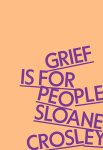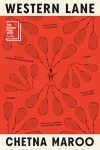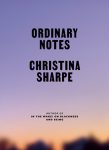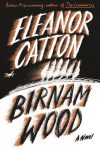
Guest Post by Kevin Brown
The title of Sloane Crosley’s book, Grief is for People, makes the subject of her writing quite clear, as she is delving into grief; however, her focus is on her grief for the loss of one person. While Crosley uses other losses—especially jewelry stolen from her apartment and the Covid pandemic—she is mainly concerned with processing the death of Russell, her best friend and former boss. As with the theft and pandemic, Russell’s death is unexpected, so Crosley writes this book largely as a way to process and understand his absence.
She divides the book into five sections to mirror the stages of grief; however, the final section is subtitled “Afterward,” not “Acceptance,” as it is clear she has not come to an acceptance of his death, even by the end of the book. In fact, that final section is addressed to Russell, as if she still wants to talk to him, even about his own death.
This description makes the book sound depressing and heavy, and it certainly is, but Crosley brings her typical humor to the subject, as well, though much of it is gallows humor. What shines through more than anything, though, is her love for Russell, despite all of his failings, which helps the reader understand why this loss matters so much for Crosley, which reminds us of why our losses continue to matter, as well.
Grief is for People by Sloane Crosley. Farrar, Straus and Giroux, 2024.
Reviewer bio: Kevin Brown has published three books of poetry: Liturgical Calendar: Poems (Wipf and Stock); A Lexicon of Lost Words (winner of the Violet Reed Haas Prize for Poetry, Snake Nation Press); and Exit Lines (Plain View Press). He also has a memoir, Another Way: Finding Faith, Then Finding It Again, and a book of scholarship, They Love to Tell the Stories: Five Contemporary Novelists Take on the Gospels. Twitter @kevinbrownwrite






